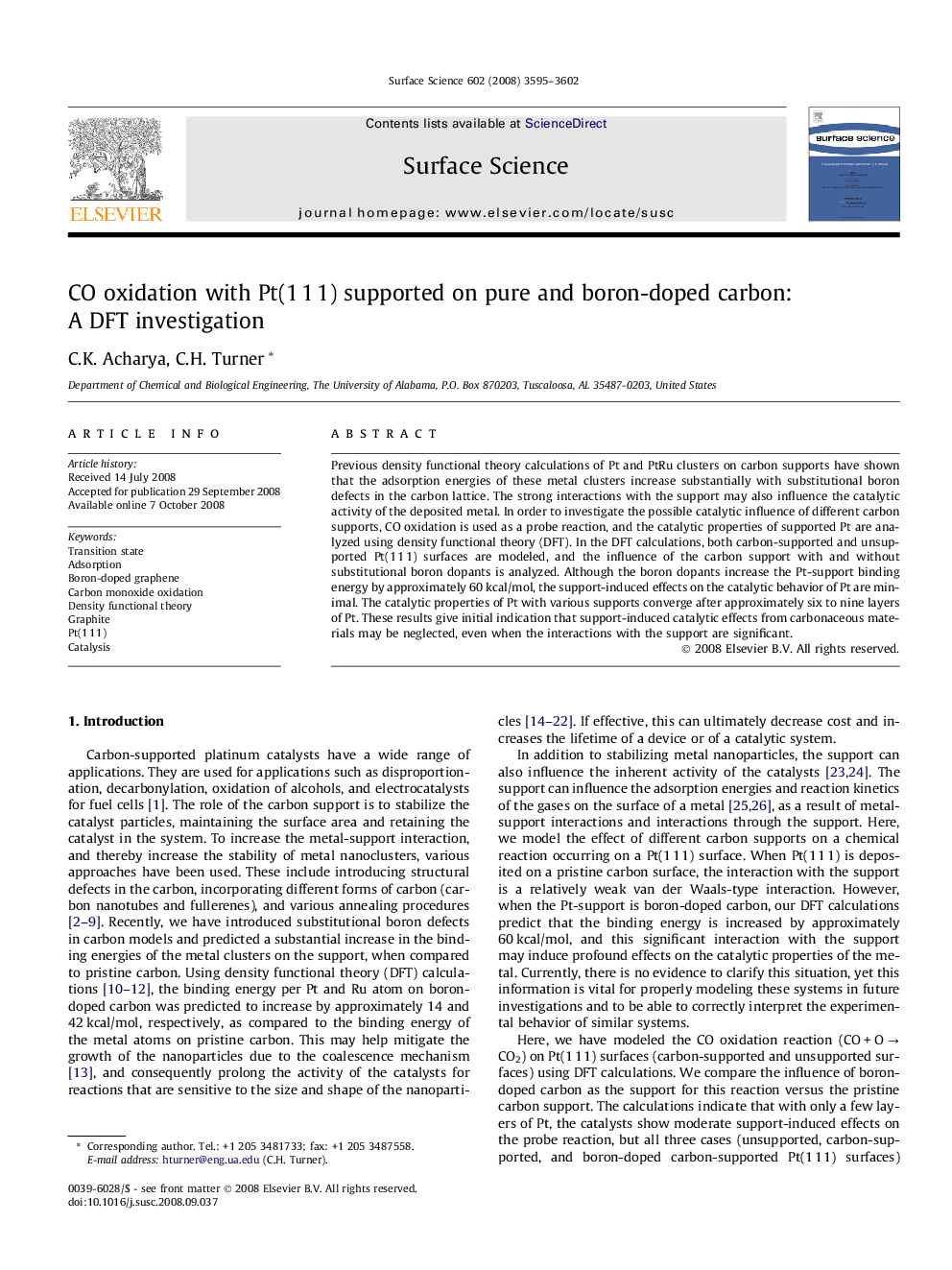| Article ID | Journal | Published Year | Pages | File Type |
|---|---|---|---|---|
| 5424168 | Surface Science | 2008 | 8 Pages |
Abstract
Previous density functional theory calculations of Pt and PtRu clusters on carbon supports have shown that the adsorption energies of these metal clusters increase substantially with substitutional boron defects in the carbon lattice. The strong interactions with the support may also influence the catalytic activity of the deposited metal. In order to investigate the possible catalytic influence of different carbon supports, CO oxidation is used as a probe reaction, and the catalytic properties of supported Pt are analyzed using density functional theory (DFT). In the DFT calculations, both carbon-supported and unsupported Pt(1Â 1Â 1) surfaces are modeled, and the influence of the carbon support with and without substitutional boron dopants is analyzed. Although the boron dopants increase the Pt-support binding energy by approximately 60Â kcal/mol, the support-induced effects on the catalytic behavior of Pt are minimal. The catalytic properties of Pt with various supports converge after approximately six to nine layers of Pt. These results give initial indication that support-induced catalytic effects from carbonaceous materials may be neglected, even when the interactions with the support are significant.
Keywords
Related Topics
Physical Sciences and Engineering
Chemistry
Physical and Theoretical Chemistry
Authors
C.K. Acharya, C.H. Turner,
